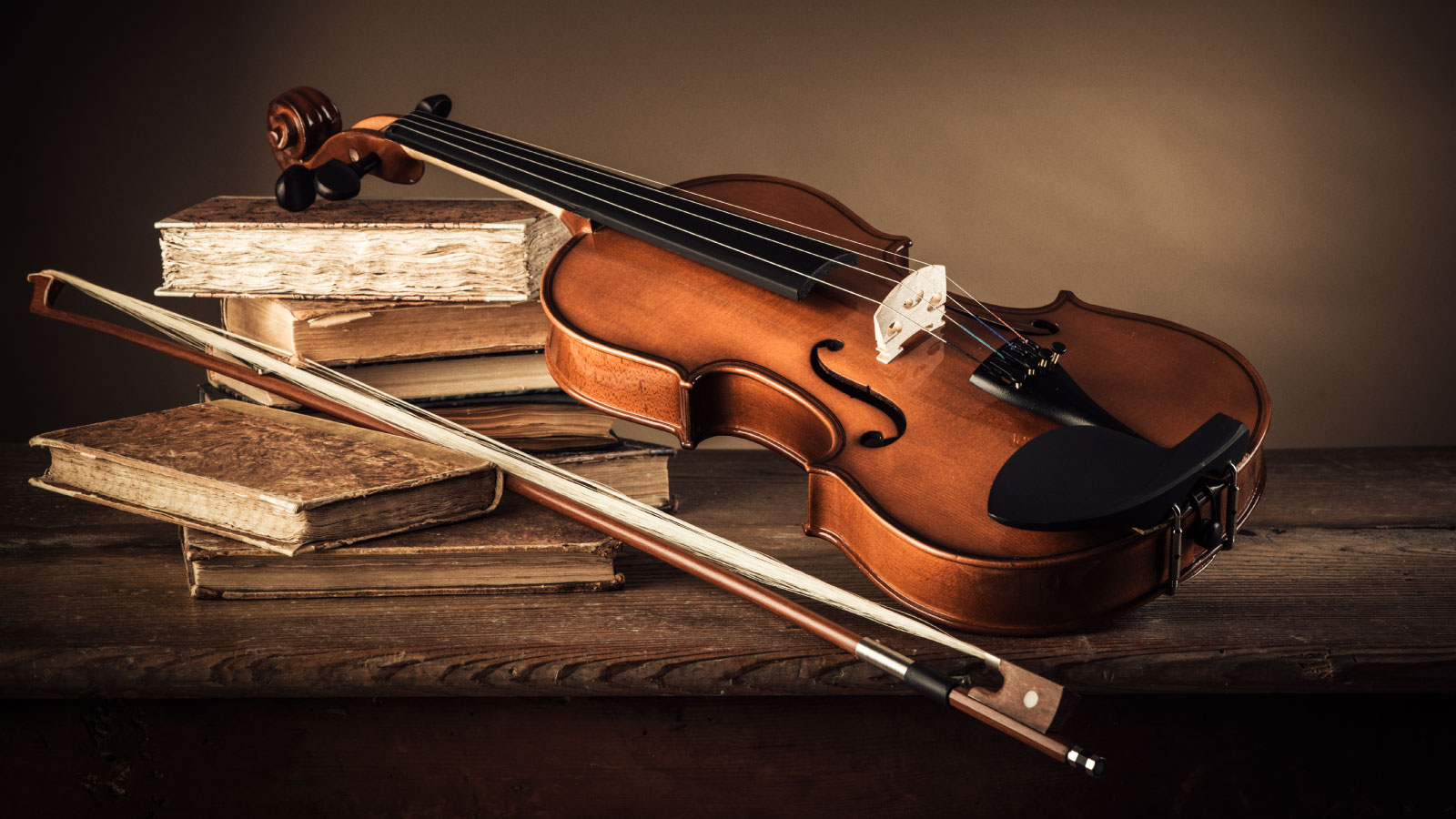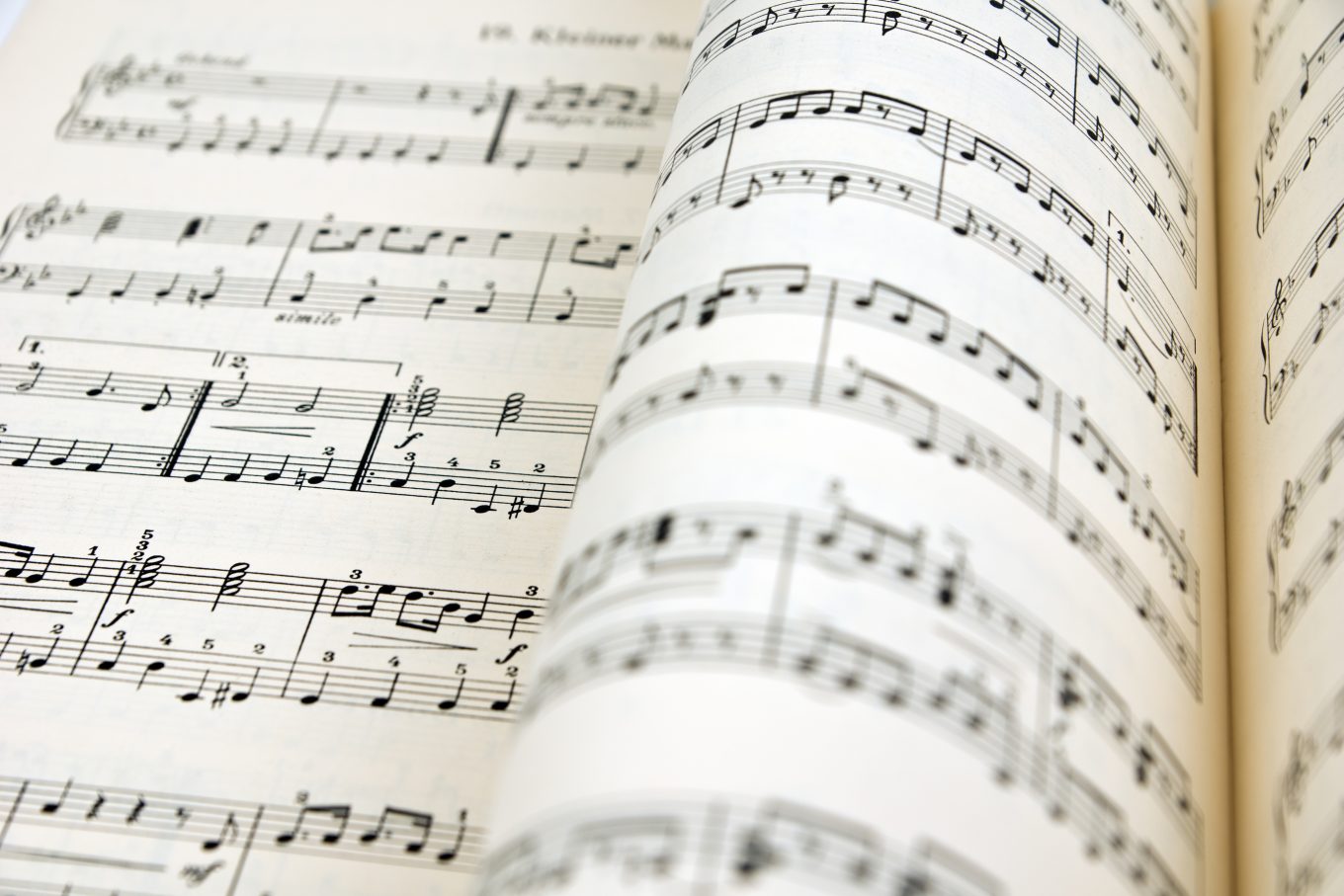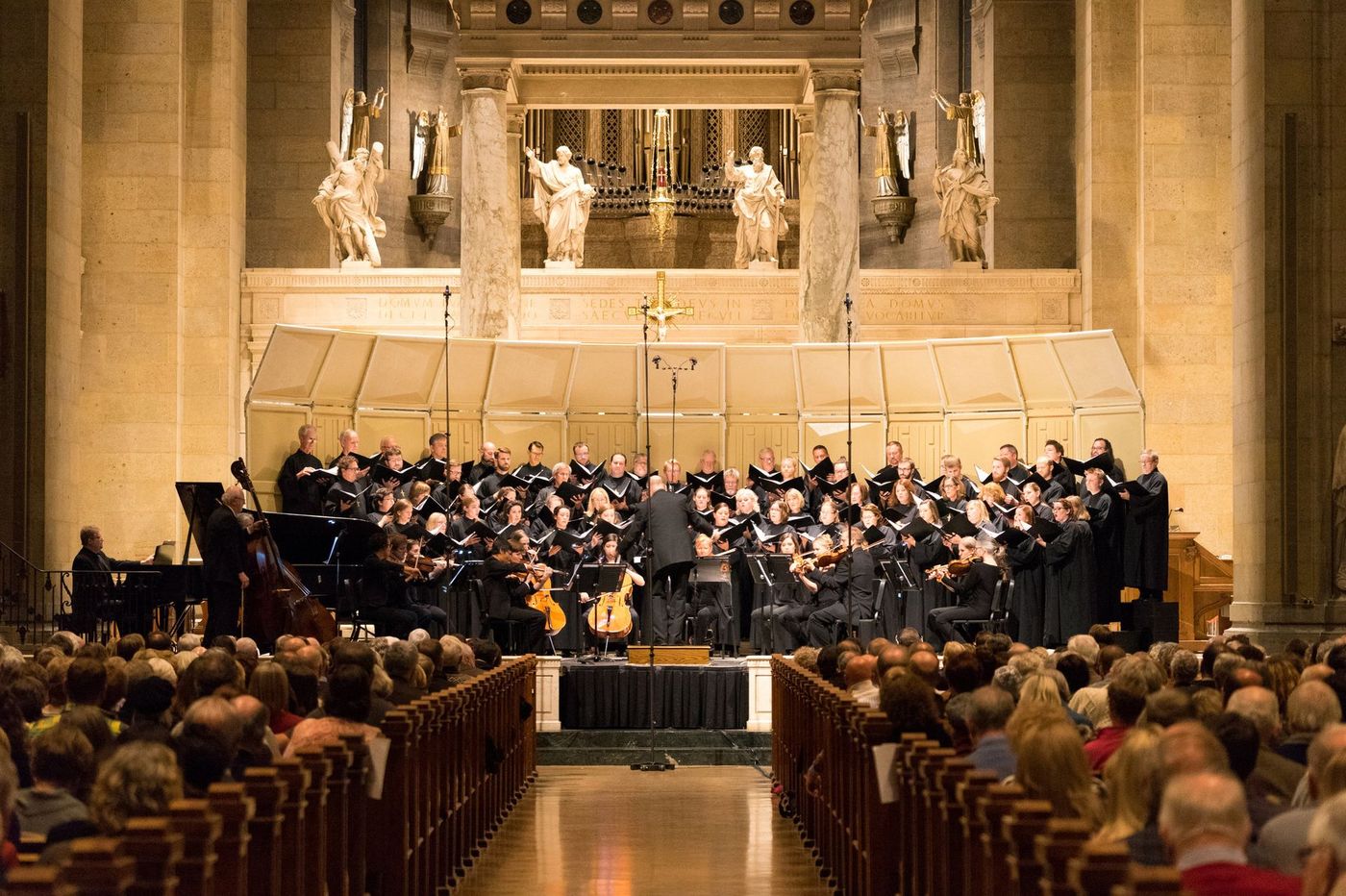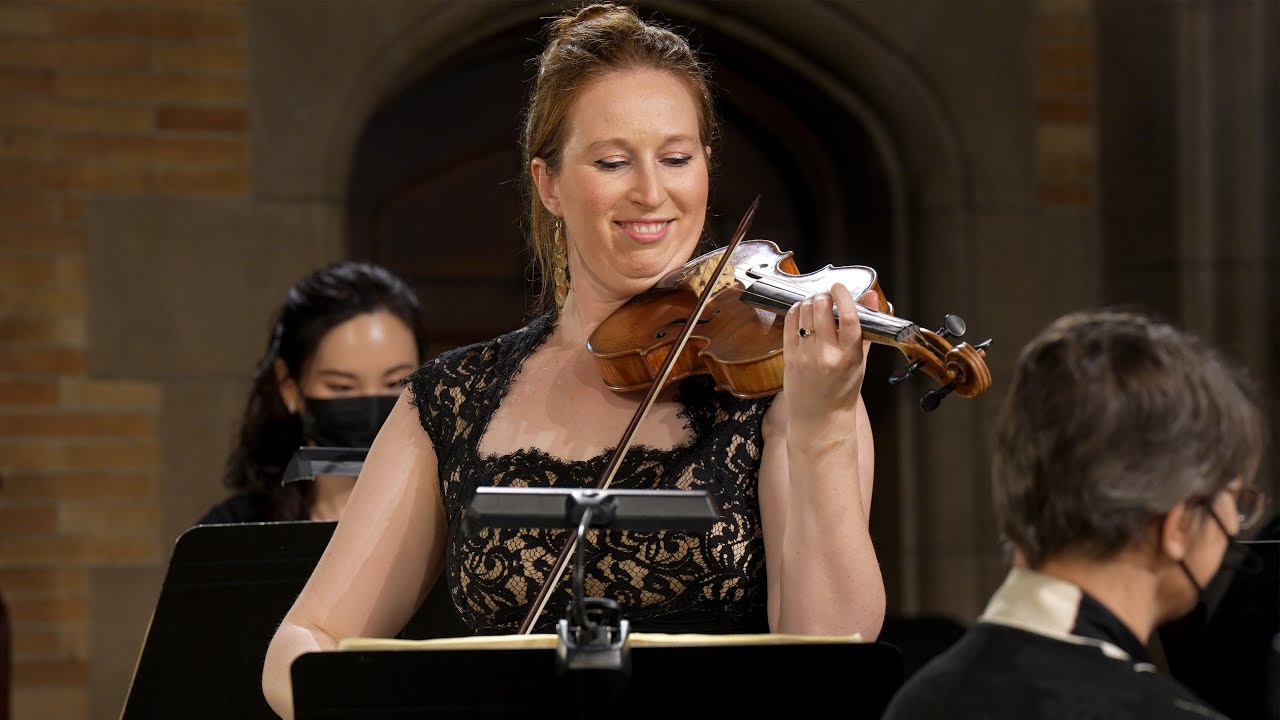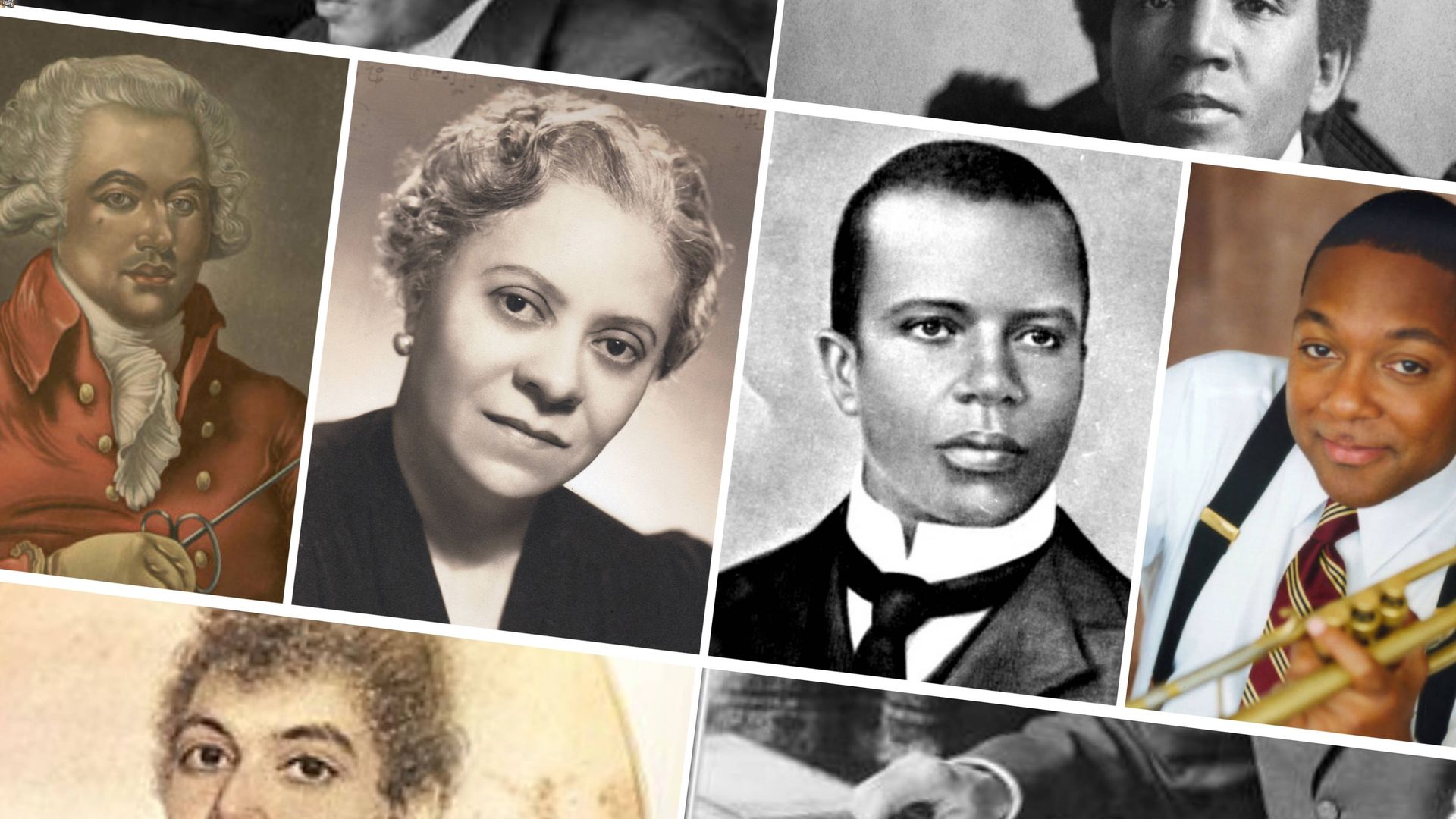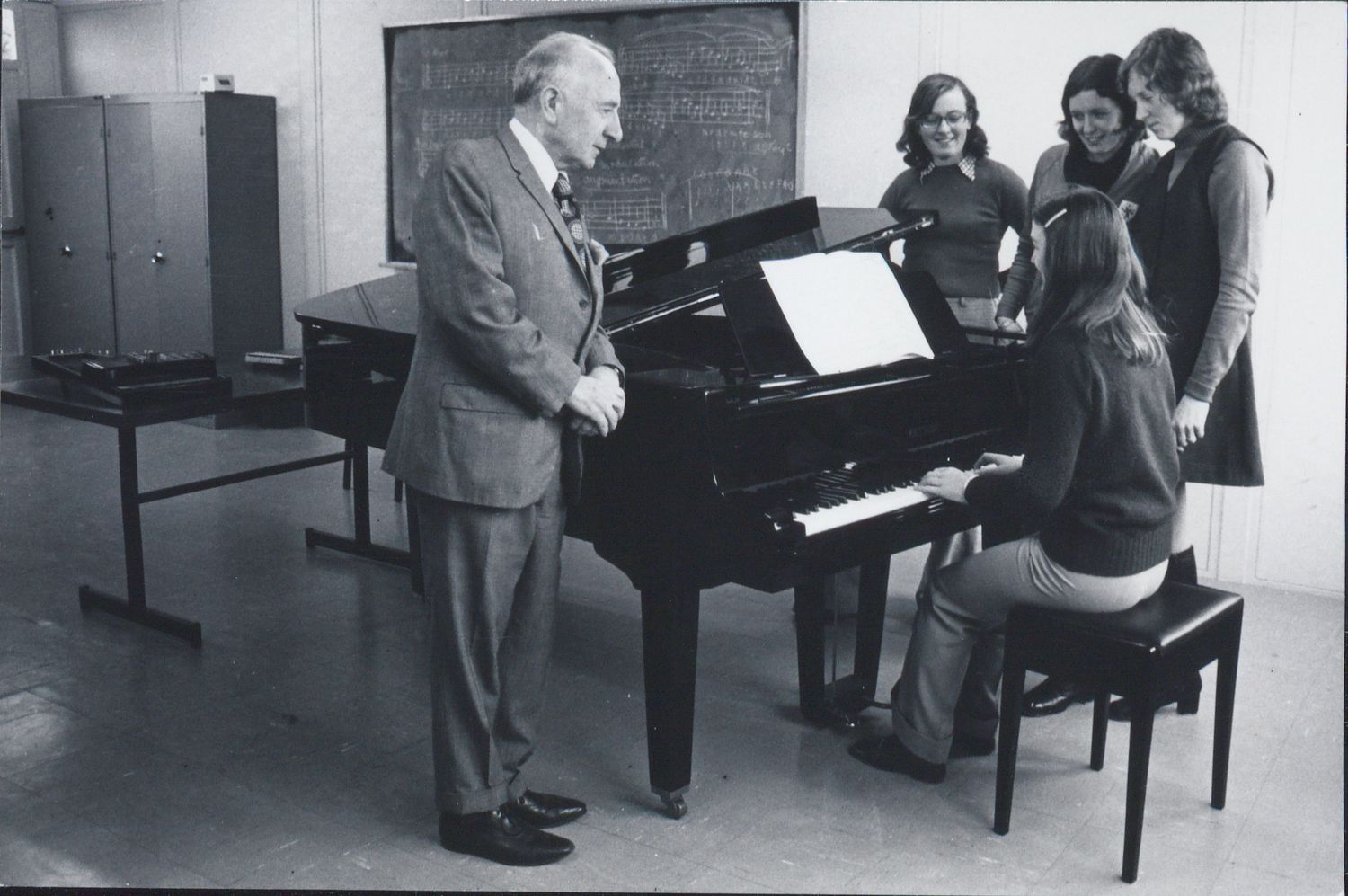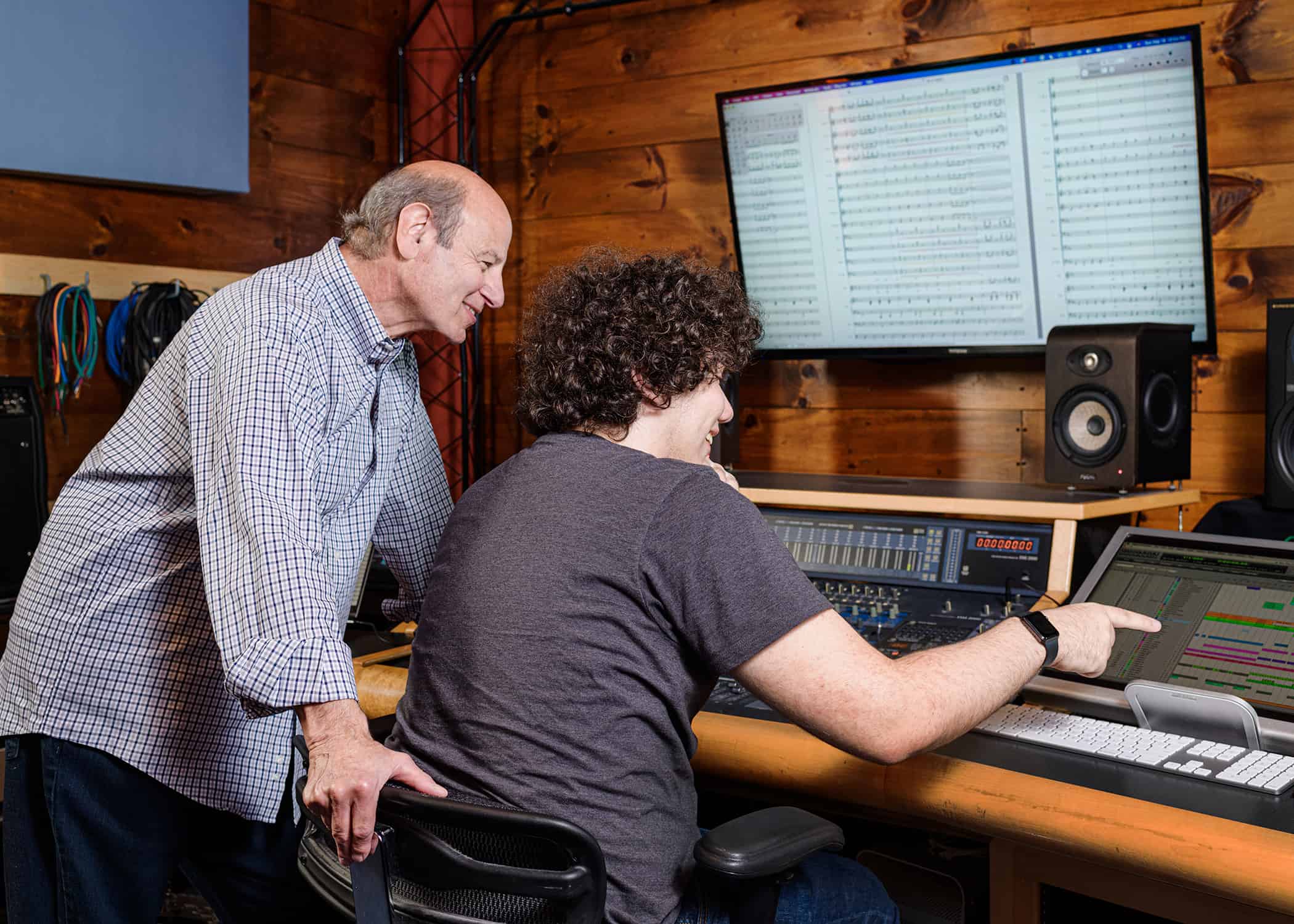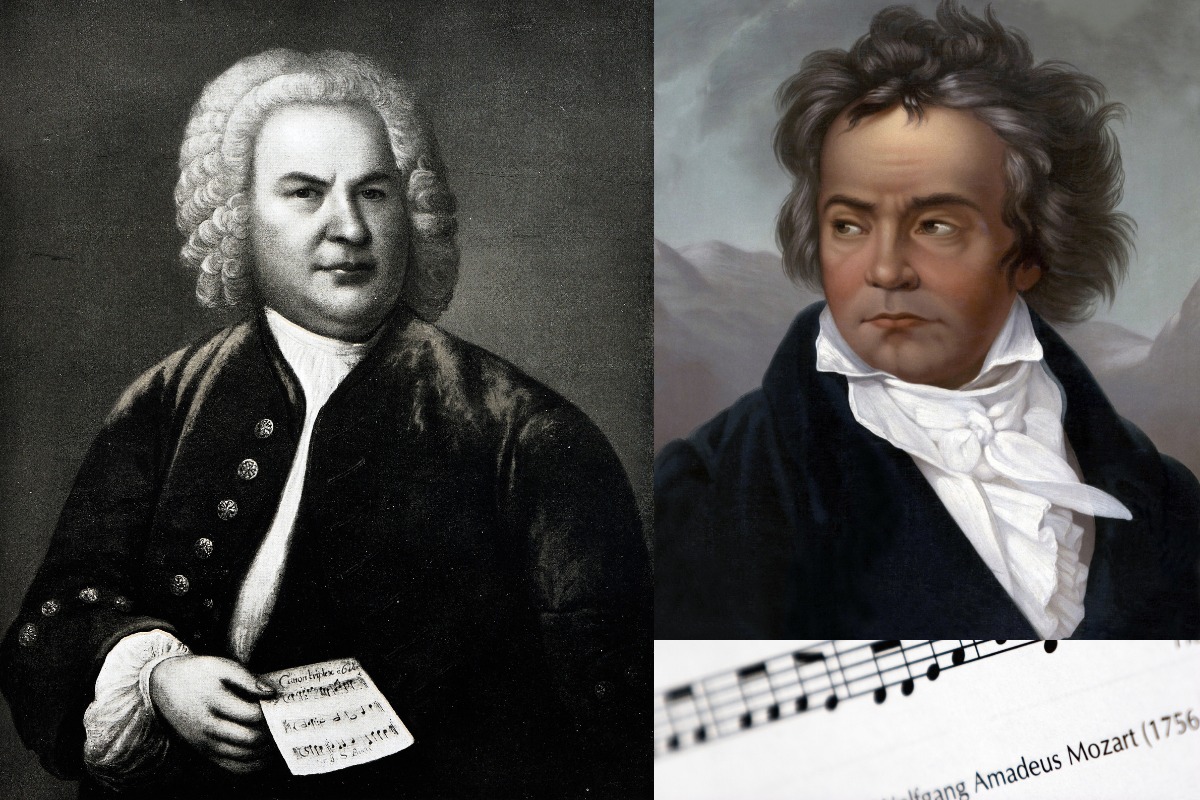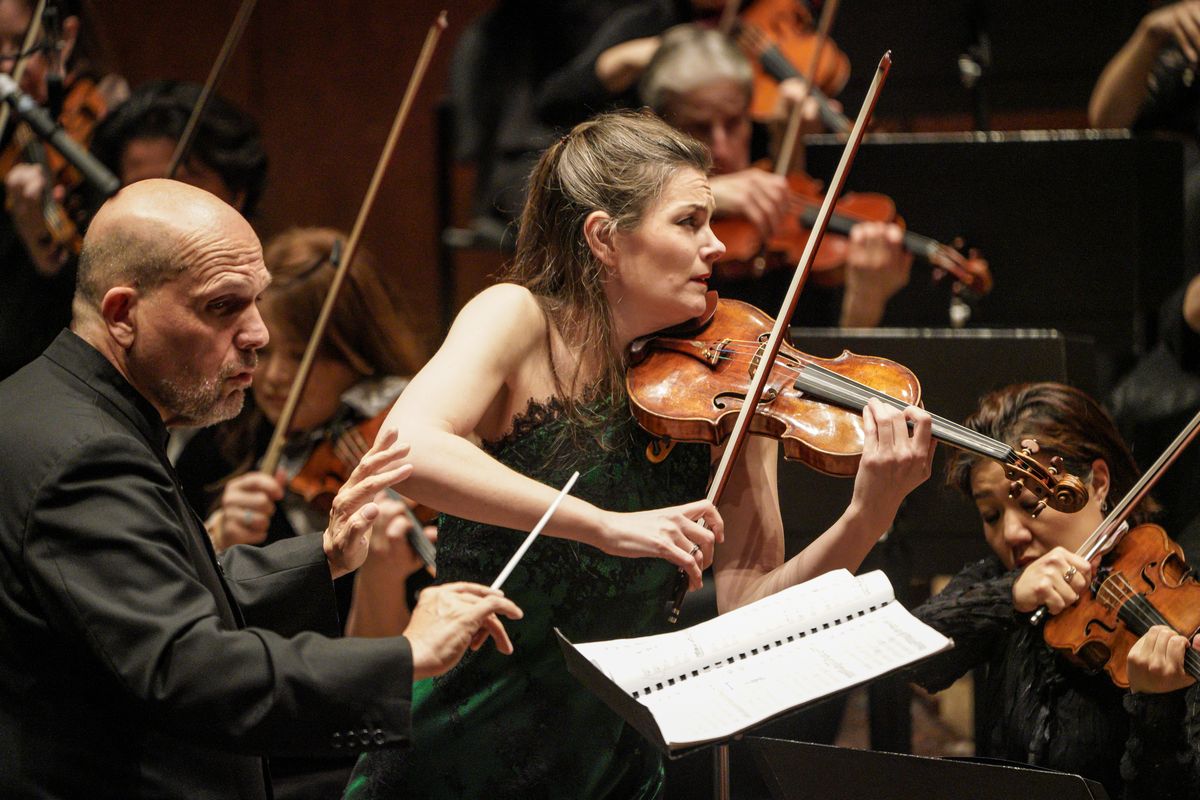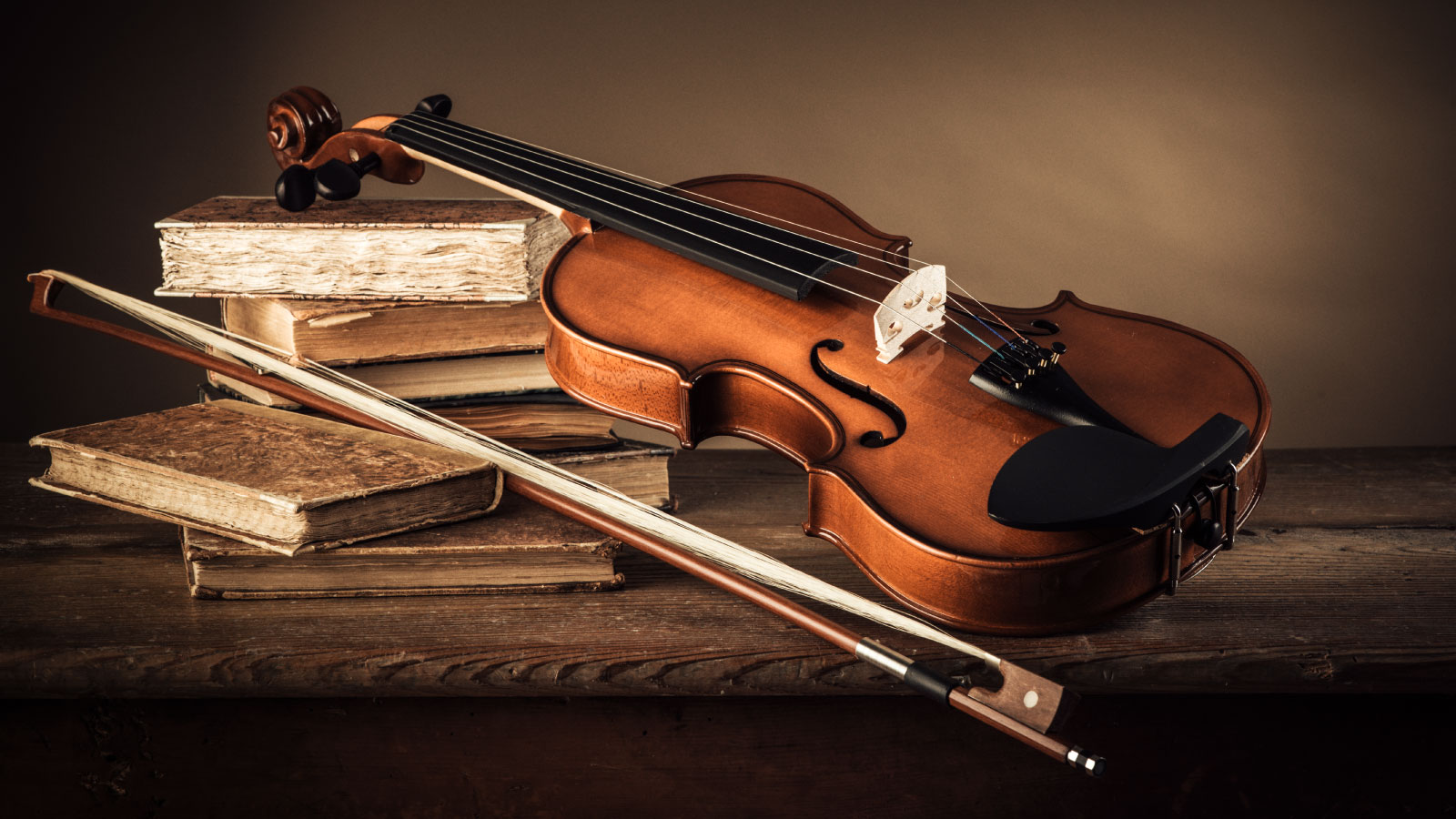Home>Events & Info>Music History>Where To Visit For Classical Music History
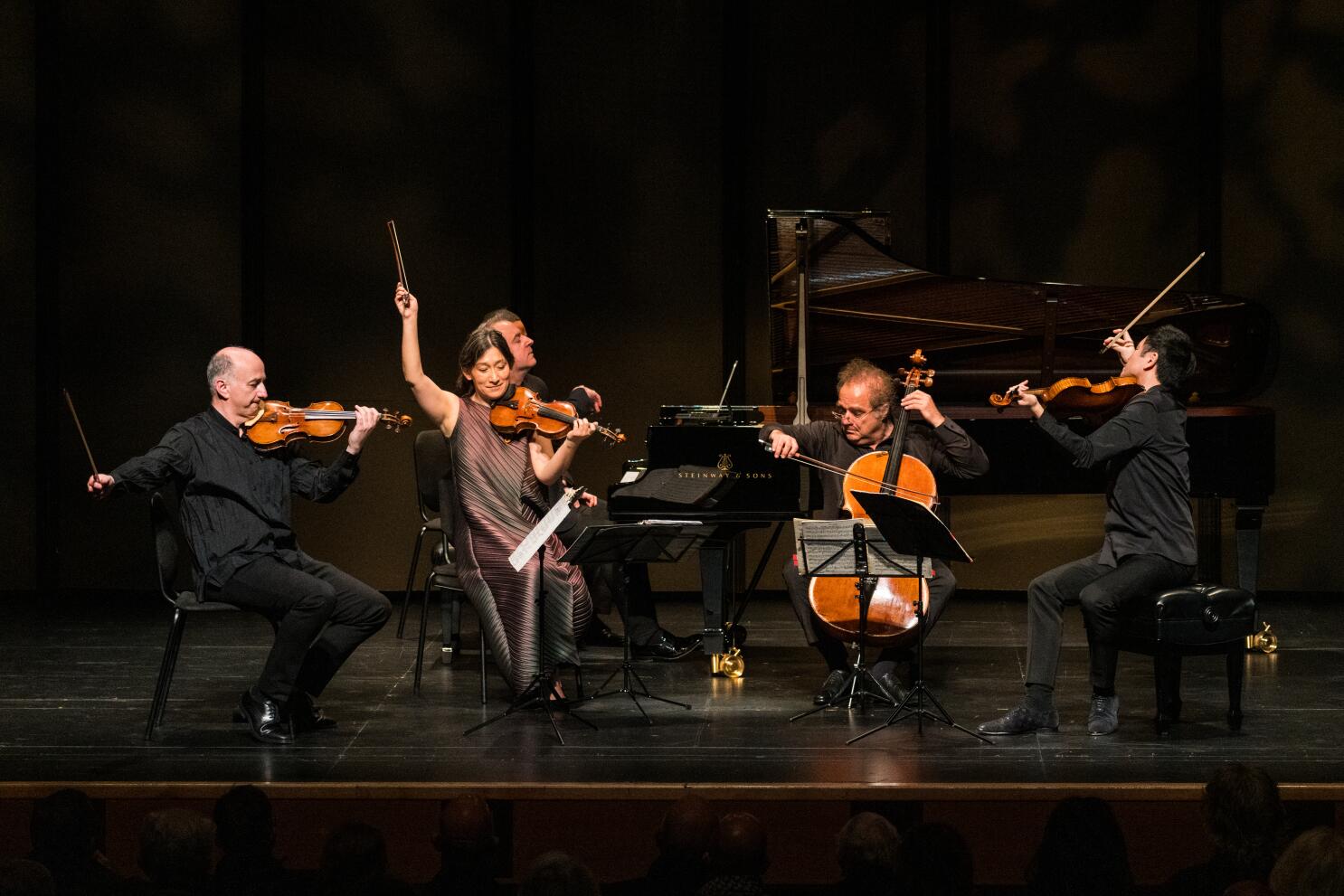

Music History
Where To Visit For Classical Music History
Modified: February 24, 2024
Discover the best destinations for exploring classical music history. Uncover the rich heritage and influential figures that have shaped the world of Music History.
(Many of the links in this article redirect to a specific reviewed product. Your purchase of these products through affiliate links helps to generate commission for AudioLover.com, at no extra cost. Learn more)
Table of Contents
Introduction
Welcome to a journey through the rich and fascinating world of classical music history. From the towering masters like Mozart and Beethoven to the iconic concert halls and opera houses that have stood the test of time, we will explore some of the most renowned destinations for music lovers.
Classical music holds a significant place in human history, representing a pinnacle of artistic expression and cultural heritage. It has the power to evoke emotions, transport us to different eras, and transcend language barriers. Exploring the history of classical music allows us to understand the influences, innovations, and pivotal moments that shaped the genre’s development over the centuries.
Whether you are a die-hard fan or simply curious about the origins and evolution of classical music, these destinations provide a delightful blend of historical landmarks, museums, theaters, and performances.
Join us as we embark on a musical pilgrimage, immersing ourselves in the captivating stories and traditions that make classical music an enduring part of our cultural fabric.
Vienna, Austria
In the world of classical music, Vienna holds a special place as the epicenter of musical excellence. Throughout history, it has been home to some of the greatest composers, musicians, and opera houses. A visit to Vienna is like stepping into a time capsule, where the spirit of Mozart, Beethoven, and Strauss still lingers in the air.
One of the must-visit destinations in Vienna for classical music enthusiasts is the Vienna State Opera House. This majestic venue has witnessed countless legendary performances since its opening in 1869. From grand operas to ballets and classical concerts, the Vienna State Opera House continues to showcase world-class talent and captivate audiences with its stunning architecture and acoustics.
A short stroll from the opera house will take you to the Beethoven-Haus Museum, a meticulously preserved residence where Ludwig van Beethoven lived from 1802 to 1804. This museum offers a unique glimpse into the life and creative process of one of classical music’s brightest stars. From personal artifacts to original manuscripts, visitors can immerse themselves in Beethoven’s genius and gain a deeper understanding of his contributions to the classical music canon.
Another noteworthy stop on a music lover’s itinerary is Mozart’s Birthplace. Located in the heart of the city, this unassuming yellow house is where Wolfgang Amadeus Mozart was born in 1756. Now converted into a museum, it houses an extensive collection of artifacts, including musical instruments, portraits, and personal letters. Walking through the rooms where Mozart spent his formative years is an intimate and enlightening experience.
In addition to these historical attractions, Vienna is renowned for its vibrant classical music scene. Visitors can indulge in a plethora of concerts, recitals, and chamber music performances. From symphony orchestras to intimate venues, the city offers an abundance of opportunities to immerse oneself in the timeless melodies of Mozart, Beethoven, and countless other masters.
Vienna truly encapsulates the spirit of classical music, with its rich history, exceptional venues, and unwavering dedication to preserving and promoting the genre. A visit to this musical haven is a pilgrimage that no music enthusiast should miss.
Leipzig, Germany
When it comes to classical music, few cities can rival the historical significance of Leipzig, Germany. This charming city in the heart of Saxony played a pivotal role in the development of Western classical music, and its streets are steeped in musical history.
The name Leipzig is synonymous with one of the greatest composers of all time: Johann Sebastian Bach. To immerse yourself in his world, a visit to the Bach Museum is a must. Located in the composer’s former residence, the museum offers a comprehensive journey through Bach’s life, music, and legacy. From his handwritten scores to personal belongings, the exhibits provide a captivating insight into the mastermind behind the Baroque era’s most revered compositions.
No exploration of Leipzig’s musical heritage would be complete without a visit to St. Thomas Church, where Bach served as the music director for over a quarter-century. Attending a concert or worship service in this stunning church is an extraordinary experience, allowing visitors to hear the music of Bach reverberating off the same walls where it was originally performed.
Leipzig is also home to the renowned Leipzig Gewandhaus Orchestra, one of the oldest ensembles in the world. Founded in 1743, the orchestra has nurtured and showcased countless musical talents over the centuries. Attending a performance by the Gewandhaus Orchestra is an unforgettable experience, where you can witness the continuation of Leipzig’s rich musical legacy.
For those curious about the life and work of another influential composer, a visit to the Felix Mendelssohn Bartholdy House is a must. Mendelssohn, a prodigy and a leader of the Romantic era, spent a significant portion of his life in Leipzig. The house, now a museum, displays artifacts and memorabilia that shed light on his remarkable career and contributions to music.
Leipzig’s commitment to classical music extends beyond its museums and concert halls. The city plays host to the internationally acclaimed Leipzig Bach Festival, where musicians from around the globe converge to celebrate the works of Bach and other renowned composers. Attending this festival is a chance to witness the power and beauty of classical music in a city that has been deeply influenced by its notes.
Leipzig is a treasure trove for classical music enthusiasts, offering a deep dive into the lives and legacies of musical luminaries like Bach and Mendelssohn. With its historic sites, vibrant music scene, and unwavering dedication to preserving its musical heritage, Leipzig is a destination that leaves an indelible mark on the hearts of music lovers.
Prague, Czech Republic
Prague, the capital city of the Czech Republic, is a haven for classical music lovers. With its rich cultural heritage and stunning architecture, Prague offers a captivating glimpse into the world of classical music.
One of the highlights of any visit to Prague is the Prague National Theatre. This breathtaking neo-Renaissance building has been a cornerstone of Czech opera and ballet since its opening in 1881. Attending a performance at this majestic venue is a treat for both the eyes and the ears, as world-class musicians and performers bring classical compositions to life on its grand stage.
For those seeking a deeper understanding of classical music in Prague, a visit to the Antonin Dvorak Museum is a must. Located in the composer’s former residence, this museum preserves the legacy of one of Czech Republic’s most celebrated musicians. From his original manuscripts to personal mementos, the museum offers a glimpse into the life and creative process of Dvorak.
Prague is also known for its lively chamber music scene, with numerous concerts taking place in historic venues throughout the city. The Prague Castle, with its stunning architecture and panoramic views of the city, often serves as a backdrop for enchanting classical music performances. Attending a chamber music concert in such a majestic setting is an experience that transports you back in time.
Another iconic destination for classical music enthusiasts is the Prague Spring International Music Festival. Held annually in May and June, this renowned festival showcases a diverse range of performances, from orchestral concerts to chamber music recitals. The festival attracts top musicians from around the world and serves as a platform for both established artists and emerging talent.
Prague’s love for classical music extends beyond its concert halls and museums. Street musicians can often be found serenading passersby with the melodious sounds of classical compositions, adding a touch of magic to the city’s atmosphere.
In Prague, classical music becomes a way of life, with its enchanting venues, esteemed festivals, and the permeating presence of musical legends. A visit to this city is a chance to immerse yourself in the rich musical heritage that has flourished within its historic walls.
London, England
London, the vibrant capital of England, is a cultural melting pot and a hub for classical music enthusiasts. With its illustrious history, world-class venues, and stellar performers, the city offers a captivating journey through the realm of classical music.
One of the iconic landmarks of London’s classical music scene is the Royal Albert Hall. This majestic venue, with its distinctive circular architecture and stunning dome, has been hosting classical concerts since 1871. Attending a performance at the Royal Albert Hall is a truly unforgettable experience, as the acoustics and grandeur of the venue enhance the magic of the music.
Another must-visit destination for music lovers in London is the Southbank Centre. Comprising various concert halls and venues, including the Royal Festival Hall, the Southbank Centre hosts a diverse range of performances, from orchestral concerts to chamber music recitals. It is also home to the world-renowned London Philharmonic Orchestra and the Philharmonia Orchestra.
London pays homage to its rich musical heritage through museums and historical sites. The Handel & Hendrix in London museum allows visitors to explore the residences of two musical giants: George Frideric Handel and Jimi Hendrix. Handel’s home is where he composed his most famous works, while Hendrix’s apartment offers a glimpse into the life of a groundbreaking rock guitarist.
The city is also home to the esteemed Royal College of Music, a premier institution for music education and performance. The Royal College of Music hosts regular concerts and recitals, presenting an opportunity to witness the immense talent of its students and faculty.
London’s vibrant classical music scene extends beyond the traditional concert halls. The city hosts a multitude of festivals and events, such as the BBC Proms, a world-famous series of concerts held annually at various venues, including the Royal Albert Hall. The BBC Proms celebrate the breadth and depth of classical music, featuring renowned orchestras, soloists, and conductors from around the globe.
London’s love for classical music is evident in its bustling music scene, prestigious institutions, and a deep-rooted appreciation for the arts. A visit to this captivating city is an invitation to immerse oneself in the beauty and grandeur of classical music.
Florence, Italy
Florence, the birthplace of the Renaissance, is not only a treasure trove of art and architecture but also a city deeply rooted in classical music. With its rich cultural heritage and historical significance, Florence offers a truly immersive experience for classical music enthusiasts.
One of the must-visit destinations in Florence is the Teatro del Maggio Musicale Fiorentino. This renowned opera house has been showcasing magnificent opera productions and symphonic concerts since its opening in 1933. Attending a performance at this iconic venue allows visitors to witness the seamless blend of music, drama, and visual art that makes Italian opera so captivating.
Florence is also home to the Accademia di Musica di Firenze, a prestigious music academy that has nurtured countless talents over the years. The academy not only offers excellent music education but also hosts regular concerts and recitals, providing a platform for its students and faculty to showcase their skills.
No visit to Florence is complete without paying homage to the great composer Giuseppe Verdi. The Verdi Festival, held annually in Florence, commemorates the life and works of this musical legend through a series of opera performances and concerts. It is a celebration of Italian operatic tradition and showcases some of the finest voices in the world.
The city is also home to the Orchestra della Toscana, an esteemed ensemble that performs a wide repertoire of classical music. Attending one of their concerts is an opportunity to experience the beauty and passion of Italian compositions interpreted by talented musicians.
For those seeking a deeper understanding of classical music history, a visit to the Museo Dell’Opera del Duomo is a must. This museum houses a remarkable collection of Renaissance musical instruments, including stringed instruments, wind instruments, and keyboards. Exploring the museum provides a unique insight into the instruments that were used during the Renaissance period and their significance in shaping the music of the time.
In addition to the classical music scene, Florence is known for its enchanting outdoor performances. During the summer months, various squares and gardens in the city come alive with classical music concerts, creating a magical atmosphere that combines the beauty of the city with the power of music.
Florence truly captures the essence of classical music, blending its rich cultural heritage with a vibrant contemporary scene. A visit to this enchanting city is an invitation to indulge in the harmonious melodies and timeless compositions that have left an indelible mark on the world of music.
Vienna State Opera House
The Vienna State Opera House, also known as Wiener Staatsoper in German, is a legendary institution that has been at the heart of Vienna’s cultural scene since its opening in 1869. Widely regarded as one of the leading opera houses in the world, it stands as a testament to the city’s deep-rooted love for classical music and opera.
The grandeur of the Vienna State Opera House is immediately apparent from its stunning architecture, characterized by a neoclassical style with ornate details. The façade is adorned with statues representing famous composers from Mozart to Wagner, an homage to the rich musical heritage that the opera house embraces.
Walking through the doors of the Vienna State Opera House is like stepping into a world of musical enchantment. The interior is awe-inspiring, with lavish decorations, crystal chandeliers, and plush seating that exudes a sense of elegance and sophistication.
Attending a performance at the Vienna State Opera House is an experience like no other. The world-class productions feature renowned opera singers, talented orchestras, and exceptional stage design. Whether you are a seasoned opera enthusiast or a first-time attendee, the immersive performances will transport you to a realm of emotions, stories, and musical brilliance.
The repertoire at the Vienna State Opera House covers a wide range of operas, from the beloved classics like Mozart’s “The Marriage of Figaro” and Puccini’s “La Bohème” to lesser-known gems and contemporary works. Each performance is meticulously conducted, allowing the music to come alive and resonate within the opulent auditorium.
For those who wish to delve deeper into the history and inner workings of the Vienna State Opera House, guided tours are available. These tours take you behind the scenes, giving you a glimpse into the backstage areas, costume workshops, and rehearsal rooms. It is a fascinating opportunity to see the intricate details that go into creating the magic on the stage.
Aside from attending performances, visitors also have the chance to enjoy the Vienna State Opera through live broadcasts on a large screen in front of the opera house. This unique experience allows for a festive atmosphere as people gather outside to witness the opera in real-time, creating a sense of community and shared appreciation for the art form.
Whether you are captivated by the history, architecture, or the awe-inspiring performances, a visit to the Vienna State Opera House is an absolute must for anyone with a passion for classical music. It is a sanctuary where the timeless beauty of opera is kept alive and continues to inspire generations of music lovers from around the world.
Beethoven-Haus Museum
The Beethoven-Haus Museum, located in Bonn, Germany, is a place of pilgrimage for classical music lovers and a testament to the enduring legacy of one of the greatest composers in history, Ludwig van Beethoven. Housed in the very building where Beethoven was born in 1770, this museum offers a captivating glimpse into the life and works of the musical genius.
Stepping into the Beethoven-Haus Museum is like entering a time capsule, immersing oneself in the world of Beethoven. The museum houses an extensive collection of artifacts, manuscripts, and personal belongings that provide a profound insight into the composer’s life, struggles, and creative process.
Visitors can explore the various rooms where Beethoven lived and composed, including his bedroom and study, which have been faithfully preserved to reflect the atmosphere of the time. The museum also features an impressive collection of instruments from the period, including pianos similar to the ones Beethoven played.
One of the highlights of the museum is the extensive collection of original manuscripts, including some of Beethoven’s most famous works. The handwritten scores offer a tangible connection to the composer’s mind, allowing us to witness the evolution of his compositions and the meticulous attention to detail that characterized his work.
In addition to the permanent exhibits, the Beethoven-Haus Museum hosts temporary exhibitions that explore various aspects of Beethoven’s life and influence. These exhibitions provide a deeper understanding of the composer’s legacy and shed light on the broader cultural and historical context in which he lived.
For aspiring musicians and scholars, the museum’s specialized research center offers a wealth of resources, including access to an extensive library and archives. It serves as a hub for scholarly exploration and deepening our understanding of Beethoven’s music and his place in classical music history.
The Beethoven-Haus Museum also plays an active role in promoting Beethoven’s music through concerts and events. The museum’s concert hall hosts regular performances by talented musicians, allowing visitors to experience the power and beauty of Beethoven’s compositions in an intimate setting.
Visiting the Beethoven-Haus Museum is an opportunity to pay homage to one of classical music’s most influential figures. It allows us to connect with the essence of Beethoven’s genius, gaining a deeper appreciation for his compositions and the indelible mark he left on the world of music.
Mozart’s Birthplace
Mozart’s Birthplace, located in the heart of Salzburg, Austria, is a cherished destination for classical music enthusiasts. It is the place where Wolfgang Amadeus Mozart, one of the greatest composers in history, was born on January 27, 1756. Now transformed into a museum, Mozart’s Birthplace offers a unique opportunity to delve into the life and musical genius of this legendary composer.
Walking through the rooms of Mozart’s Birthplace is like stepping back in time. The museum meticulously showcases the living conditions of the Mozart family during the composer’s early years. Visitors can explore the various chambers, including the kitchen, bedrooms, and the composer’s very own childhood space, gaining insights into the environment in which Mozart grew up.
The museum’s exhibits feature an extensive collection of authentic artifacts, including musical instruments, personal letters, portraits, and family mementos. These precious items offer a glimpse into Mozart’s talent, his family’s support, and the cultural milieu that shaped his musical development.
One of the highlights of a visit to Mozart’s Birthplace is the opportunity to view original manuscripts of some of his most famous compositions. These handwritten scores reveal the meticulous craftsmanship and genius that went into the creation of timeless masterpieces such as “Eine kleine Nachtmusik” and “Symphony No. 40 in G minor.” Witnessing these manuscripts up close is a truly awe-inspiring experience.
In addition to the permanent exhibits, the museum frequently hosts temporary exhibitions that explore different aspects of Mozart’s life and artistic journey. These exhibitions offer a deeper understanding of his creative process, his collaborations, and the broader musical landscape of his time.
Mozart’s Birthplace is not just a place for passive observation; it actively engages visitors in the world of Mozart’s music. The museum’s state-of-the-art audio guides provide insightful commentary on the exhibits, allowing visitors to listen to excerpts of Mozart’s compositions and gain a deeper appreciation for his musical genius.
Located in the charming Getreidegasse district of Salzburg, the surroundings of Mozart’s Birthplace further enhance the experience. Visitors can take a leisurely stroll down the narrow streets, explore the shops and cafes, and immerse themselves in the vibrant atmosphere that remains ever-present in this historical quarter.
Mozart’s Birthplace is a true homage to the life and legacy of one of the greatest composers in history. It invites us to explore the intimate details of Mozart’s upbringing, his artistic journey, and the timeless music that continues to captivate audiences worldwide.
Prague National Theatre
The Prague National Theatre, a magnificent neo-Renaissance building situated on the banks of the Vltava River, is a jewel in the heart of Prague, Czech Republic. It is not only a cultural landmark but also a symbol of national pride and a testament to the city’s deep appreciation for the performing arts, particularly opera and ballet.
Since its grand opening in 1881, the Prague National Theatre has been a hub for world-class performances, enchanting audiences with its stunning architecture and exceptional artistic productions. Attending a performance at this iconic venue is an immersive experience, as the combination of exceptional talent, richly decorated interiors, and impeccable acoustics creates an unforgettable atmosphere.
The repertoire of the Prague National Theatre is diverse, ranging from beloved classics like Verdi’s “La Traviata” and Puccini’s “Madama Butterfly” to less well-known operas and contemporary works. Each performance is a harmonious convergence of stunning vocals, captivating storytelling, and meticulously designed stage sets that transport audiences into the mesmerizing world of opera.
In addition to opera, the Prague National Theatre is renowned for its ballet productions. The resident ballet company, known for its technical mastery and artistic expression, brings classical and contemporary works to life with grace and precision. From the enchanting beauty of Tchaikovsky’s “Swan Lake” to the bold and innovative choreography of modern pieces, the ballet performances are a true delight for the senses.
Even if you are not attending a performance, a visit to the Prague National Theatre is still a worthwhile experience. Admire the breathtaking façade of the building, which features statues of great Czech artists and historical figures, and take a stroll along the riverside promenade that leads to the theater’s entrance. The elegant interiors, adorned with luxurious details and ornate chandeliers, convey a sense of opulence and grandeur.
The Prague National Theatre has played a significant role in promoting Czech culture and nurturing local talent. It serves as a platform for both established and emerging artists, supporting their artistic development and contribution to the vibrant cultural scene of Prague.
For those seeking a deeper understanding of the theater’s history and behind-the-scenes insights, guided tours are available. These tours provide a glimpse into the backstage area, costume workshops, and rehearsal spaces, giving visitors a better understanding of the immense effort and craftsmanship that goes into creating the magical performances.
The Prague National Theatre stands as a testament to the city’s passion for the arts and its commitment to preserving and promoting the beauty of opera and ballet. Whether you are a seasoned enthusiast or a curious newcomer, a visit to this architectural gem is an opportunity to immerse yourself in the captivating world of the performing arts.
Royal Albert Hall
The Royal Albert Hall, an iconic concert venue in London, England, is a symbol of grandeur, excellence, and a testament to the city’s vibrant classical music scene. Since its inauguration in 1871, it has been a stage for some of the world’s most renowned performers and a platform for showcasing the beauty and diversity of classical music.
The striking circular architecture of the Royal Albert Hall is instantly recognizable, with its distinctive terracotta exterior and imposing domed roof. Stepping inside, visitors are greeted by an awe-inspiring interior, replete with elegant decoration and a soaring auditorium that exudes a sense of majesty.
The venue’s world-class acoustics make it a preferred choice for orchestras, choirs, and soloists from around the globe. Attending a performance at the Royal Albert Hall is an extraordinary experience, as the music resonates through the grand space, enveloping the audience in its rich tones and stirring emotions.
One of the hall’s most celebrated events is the Proms, an annual series of classical music concerts held during the summer months. The BBC Proms, as it is officially known, offers an eclectic mix of orchestral performances, chamber music recitals, and choral works. The culmination of the Proms is the famed Last Night, a joyous celebration featuring beloved pieces, flag-waving, and a jubilant singalong.
In addition to its promotion of classical music, the Royal Albert Hall is known for hosting a diverse range of events that embrace different genres, such as rock, pop, jazz, and contemporary music. This versatility has made it an inclusive and vibrant venue that caters to a wide array of musical tastes and interests.
Beyond the performances, the Royal Albert Hall holds a special place in history. It has witnessed numerous historic moments, including the Suffragette rallies, as well as significant cultural and charitable events. The venue is not only a symbol of artistic excellence but also a testament to the hall’s commitment to social causes and the betterment of society.
Guided tours of the Royal Albert Hall offer visitors the opportunity to explore the venue’s rich history, discover hidden corners, and gain insights into the intricate workings of this magnificent institution. The tours provide glimpses behind the scenes, allowing visitors to appreciate the immense scale and logistical aspects that make each performance possible.
The Royal Albert Hall stands as a testament to London’s enduring love affair with classical music and its commitment to fostering artistic expression. Its majestic presence, storied history, and world-class performances make it one of the most prestigious venues in the world, leaving an indelible impression on all who have the privilege of experiencing its magic.
Conclusion
Embarking on a journey through the world of classical music history is a captivating and enriching experience. From the opulent Vienna State Opera House to the historic birthplaces of Mozart and Beethoven, and the majestic Prague National Theatre to the iconic Royal Albert Hall in London, each destination offers a unique window into the legacy of classical music.
These renowned venues and museums not only showcase the works of musical masters but also immerse visitors in the cultural and historical context in which these composers and musicians thrived. From exploring original manuscripts and personal artifacts to attending world-class performances, visitors have the opportunity to form a deeper connection with the music and the creative minds behind it.
Every city mentioned – Vienna, Leipzig, Prague, London, and Florence – has its distinct charm and contribution to the classical music landscape. Whether it’s Vienna’s unwavering dedication to opera, Leipzig’s profound influence on Western classical music, the rich musical heritage of Prague, the vibrant classical music scene of London, or Florence’s ties to the Renaissance and symphonic traditions, each destination has played a pivotal role in shaping the history and evolution of classical music.
As we conclude this musical journey, it is evident that the appreciation for classical music extends beyond geographical boundaries. It is a shared passion that transcends time and language, connecting people from all walks of life through the universal language of beautiful melodies and profound emotions.
Whether you are a devoted classical music enthusiast or someone who is curious about the intricacies of the genre, these destinations offer a wealth of experiences that capture the essence of classical music history. From the opulent opera houses and concert halls to the museums and festivals dedicated to preserving this legacy, each place provides a unique perspective and a chance to immerse yourself in the captivating world of classical music.
So, pack your bags, open your ears and heart, and embark on a journey that will inspire, educate, and leave you with a deep appreciation for the timeless beauty of classical music.

